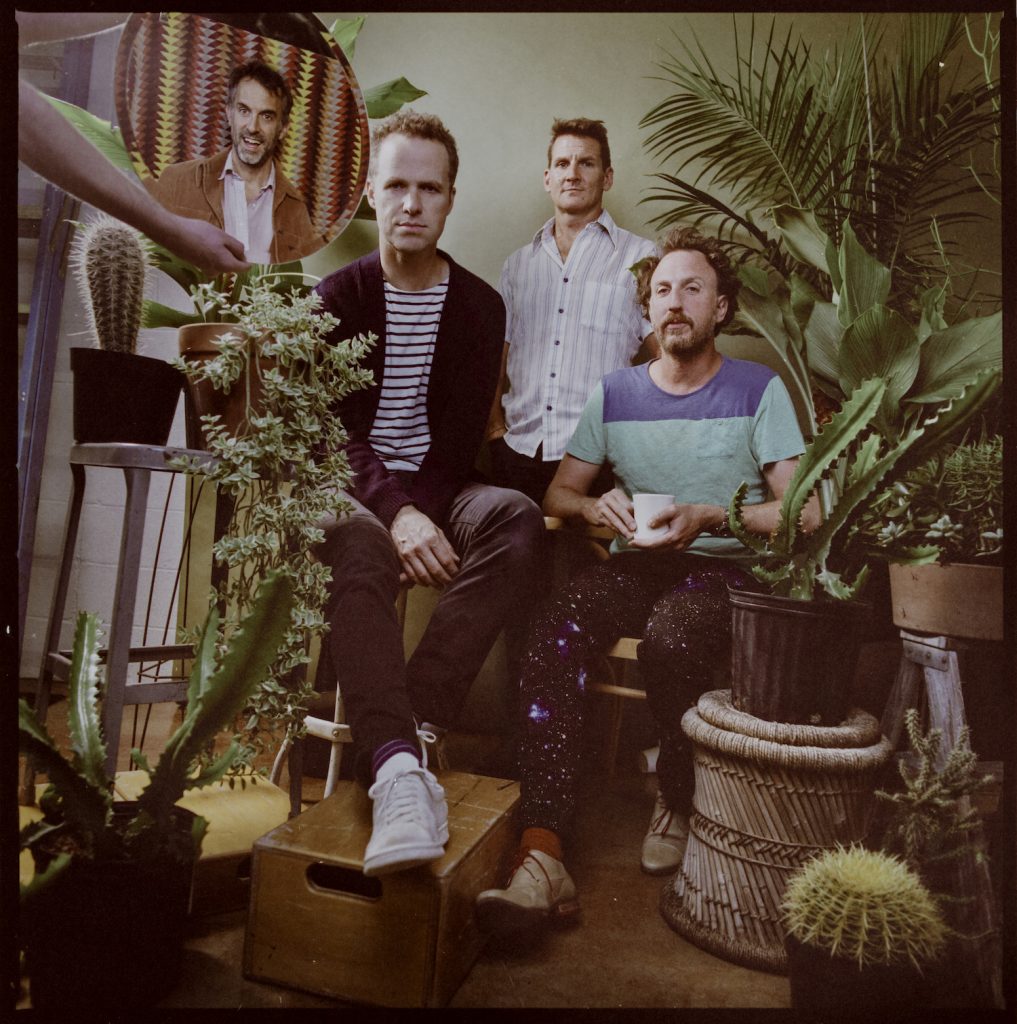
The last time we checked in with Guster for a MAGNET cover story four years ago, the quartet was dipping its toes into Evermotion’s temperate electro-pop seas with help from the late Richard Swift. For the new Look Alive (Nettwerk), they sought the guidance of seasoned Brit Leo Abrahams (Brian Eno, Jarvis Cocker, Imogen Heap) in their efforts to further distance themselves from their organic folk-pop roots. Look Alive’s iridescent sheen and languid atmospherics will no doubt continue to irk fans who lamented Evermotion’s techno leanings. But eight albums and 24 years into its evolution, Guster has earned the benefit of the doubt for embracing change. And Look Alive certainly has its moments.
MAGNET spoke with Guster’s Ryan Miller, who explained the band’s tactics and how they’ll translate to the stage on its current tour.
So you’re calling from the nation’s capital?
My friend, Dean Phillips from Minnesota, has been elected to Congress, and I’m here visiting. While I was sitting in his office, the president was giving his thing [about the three-week reprieve from the government shutdown]. It was crazy.
The way I see it, you could’ve done one of two things after Evermotion. You could’ve reverted back to what everybody expects of Guster, or you could’ve moved even further in the electro/techno direction of the last album. It appears you’ve done the latter.
I feel like this one is more of a move to middle than the Richard Swift album was. It’s less abrasive, even though it’s a very different sound for us. It’s not a wacky record—it’s just a wacky record for us.
Are you bracing yourselves for the reaction you might get from some fans?
At this point, I think the hardcore fans are along for the ride. Of course, some of them are going to be like, “This isn’t what I prefer, but I respect it.” So, yeah, I guess we’re bracing ourselves a little bit. But we never really know how far we’ve gone until six months or a year later. Like, “This is everyone’s fully formed opinion of the record, and this is where it succeeded and this is where it failed.”
So what were your takeaways from Evermotion?
The spirit of that thing really changed the way we make records—in terms of freeing us up to be freaky and not overthink certain things. What Evermotion did for Look Alive was give us a wall to push up against. We really wanted Look Alive to sound like an audiophile record. Maybe we didn’t think that from the beginning, but it seems like we ended up there.

What was it like working with Leo Abrahams?
Amazing. We just locked in with him. Part of the reason this band continues to grow has to do with our choice of collaborators. This is the first record in a long time where we can’t wait to get back into the studio with the same producer again. There’s not a single accident on this album. It’s all so purposeful.
How did you hook up with him?
I know Regina Spektor. We share this other producer in David Kahne, from (2010’s) Easy Wonderful, and it really didn’t go that well. Several years ago, I asked her if she’d ever worked with a producer she loved unequivocally, and she mentioned Leo. So I put him on a list, gave it to our manager and forgot about it. Then his name came up again, and we got on the phone with him. He said this one thing that made me light up: “All your albums are quite warm and vintagey sounding, and I’m interested in cold, icy sounds.” We wanted to have a very contemporary-sounding record. We wanted to sound like James Blake, not Paul McCartney.
What’s a good example of that on the album.
“Look Alive” started as a piano song, and we gave it to Leo and told him, “We know that we don’t want it to be this.” He took it home and worked on it for like two days. When he presented it to us, it was very divisive. Some of us thought it was the best thing that ever happened to the band, and some of us were like, “I can’t get with this. It’s so depressing.” It took us a few minutes to get our heads around it collectively.
So the songs went through some serious evolution in the studio.
Yeah, almost everything—except for “Hard Times,” which we wrote in the studio. We went to the National Music Centre in Canada, which is essentially a keyboard museum. A lot of the textures we’re playing with on the album we found in the vaults there.
“Hello Mister Sun” is a keeper.
Yeah, it was like, “Can we really have a chorus that goes, ‘Hello, Mister Sun/You can make a rainbow?’” But that’s kind of where we’re at in our lives and our career. I mean, why did I sing in an English accent (on “Overexcited”)? Because it’s kind of funny and it helped me get into character. And why do we have a super-dark song like “Mind Kontrol” on the same album as “Don’t Go,” which sounds like an ABBA song. At some point, I think we just have to own all this stuff.
What does that mean for the live show?
It’s a huge reboot, but it’s been working. We had to redo our entire rig so I could put a sampler up front. Brian (Rosenworcel) has all these drum triggers, and we’re bringing in horns in some cases. It’s been a massive, massive undertaking, and it’s still going on. We want to do right by all this stuff. Getting the song across is really the only important thing.
—Hobart Rowland






